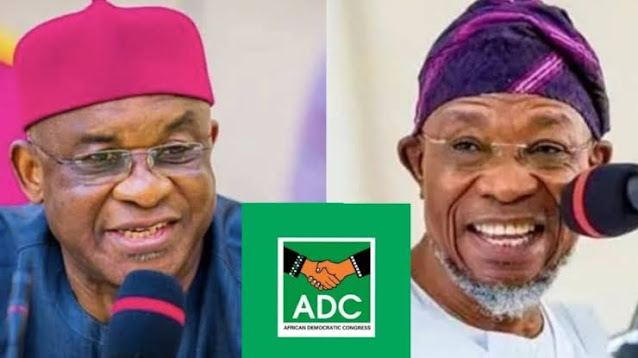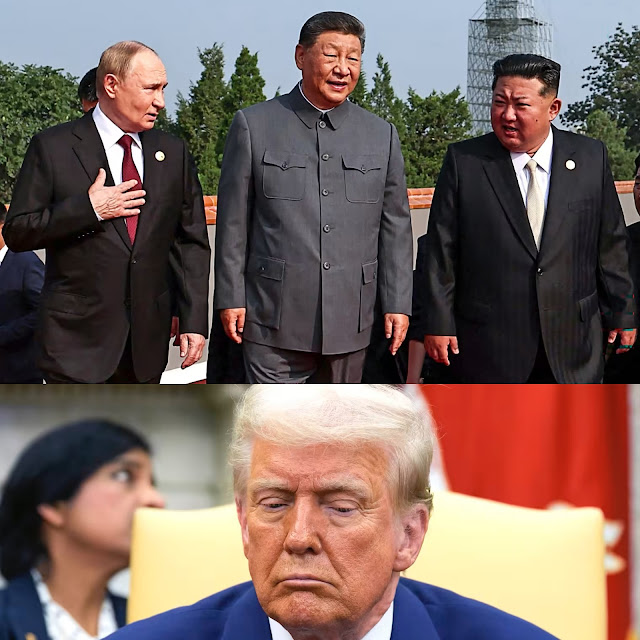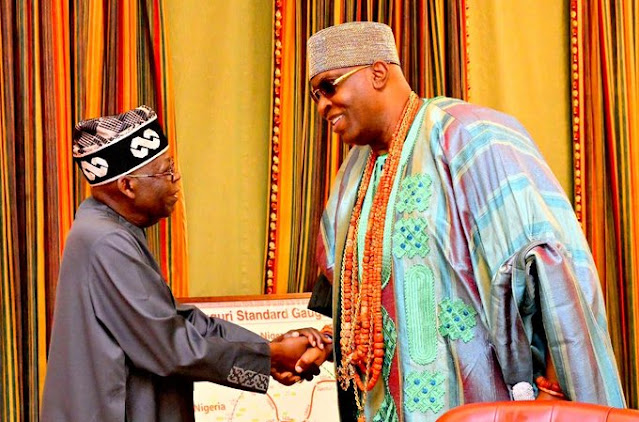On September 3, 2025, the African Democratic Congress (ADC) made a significant announcement regarding the formal acknowledgment of its new leadership under former Senate President David Mark by the Independent National Electoral Commission (INEC). Speaking on the program Big Agenda with Chuchi on Prime Reporters, the ADC’s National Publicity Secretary, Mallam Bolaji Abdullahi, revealed that INEC is expected to recognize the David Mark-led leadership before the end of the week. This development comes after months of controversy, internal disputes, and procedural delays surrounding the party’s leadership transition, which has positioned the ADC as the chosen platform for a powerful opposition coalition aiming to challenge President Bola Tinubu in the 2027 general elections. This article provides a comprehensive exploration of the announcement, its implications, and the broader political context shaping the ADC’s trajectory in Nigeria’s evolving political landscape.
Background: The ADC’s Leadership Transition
The African Democratic Congress (ADC) has been at the center of Nigeria’s political discourse since July 2025, when it was adopted as the platform for a coalition of prominent opposition figures seeking to unseat the ruling All Progressives Congress (APC) in the 2027 elections. The coalition, which includes high-profile leaders such as former Vice President Atiku Abubakar, Labour Party’s 2023 presidential candidate Peter Obi, former Minister of Transportation Rotimi Amaechi, and former Kaduna State Governor Nasir El-Rufai, among others, selected the ADC as a vehicle to consolidate opposition forces and present a united front against President Tinubu’s administration.
The decision to adopt the ADC as the coalition’s platform necessitated a leadership overhaul within the party. On July 29, 2025, during a National Executive Committee (NEC) meeting in Abuja, the ADC announced the resignation of its long-serving National Chairman, Chief Ralph Nwosu, and other members of the National Working Committee (NWC). In their place, former Senate President David Mark was named interim national chairman, with former Osun State Governor and Minister of Interior Ogbeni Rauf Aregbesola appointed as national secretary. The new NWC also included notable figures such as Bolaji Abdullahi (National Publicity Secretary), Babachir Lawal (Deputy National Chairman, North East), and Senator Musa Elayo (National Vice Chairman for Diaspora), among others.
This transition, however, was not without controversy. The ADC’s adoption by the opposition coalition and the subsequent leadership changes sparked internal resistance from some party members who viewed the move as an external takeover. Figures such as former ADC presidential candidate Dumebi Kachikwu and former Gombe State governorship candidate Nafiu Bala publicly criticized the new leadership, describing David Mark as a “factional chairman” imposed by external forces. Bala even declared himself interim national chairman, citing constitutional breaches in the leadership transition process. These disputes have fueled debates about the legitimacy of the Mark-led leadership and delayed INEC’s formal recognition of the new NWC.
The Announcement: INEC’s Impending Recognition
The recent statement by Mallam Bolaji Abdullahi on Big Agenda with Chuchi marks a pivotal moment in the ADC’s leadership saga. Abdullahi disclosed that the delay in INEC’s acknowledgment of the David Mark-led leadership was purely administrative and not indicative of any substantive issues. He emphasized that the party had completed the necessary processes to formalize the leadership change and had communicated the outcome to INEC. According to Abdullahi, the commission is expected to update its records and officially recognize the new NWC, including David Mark as chairman and Rauf Aregbesola as secretary, before the end of the week of September 3, 2025.
Abdullahi’s confidence stems from recent engagements between ADC leaders and INEC officials. He explained that the delay was due to procedural requirements, such as the submission of signature specimens and other documentation, which the party has now addressed. “What is happening is just administrative, there is actually nothing to it. We just need to send some signatures, and everything will be in order,” Abdullahi told Daily Trust in a related interview. He further noted that INEC officials had been present at the NEC meeting where the leadership transition was formalized, suggesting that the commission was fully aware of the process and merely needed to complete its internal procedures.
This announcement has been met with cautious optimism by supporters of the Mark-led leadership, who see it as a step toward consolidating the ADC’s position as a formidable opposition platform. However, it has also reignited debates among detractors who continue to question the legitimacy of the leadership change and the coalition’s motives.
The Broader Context: The ADC’s Role in 2027
The ADC’s emergence as the coalition’s platform is a strategic move by opposition leaders to address the fragmentation that has historically weakened their electoral prospects. Nigeria’s political landscape has been dominated by the APC and the Peoples Democratic Party (PDP) since the return to democracy in 1999. However, the 2023 elections highlighted the growing influence of alternative parties, such as the Labour Party, which saw significant success under Peter Obi’s candidacy. The opposition coalition’s decision to rally behind the ADC reflects a recognition that a unified platform is essential to challenge the APC’s dominance in 2027.
David Mark, a seasoned politician and retired brigadier general, brings significant experience to the ADC’s leadership. As Senate President from 2007 to 2015 and a senator for Benue South from 1999 to 2019, Mark has a deep understanding of Nigeria’s political dynamics. His appointment as interim chairman is seen as a stabilizing force for the ADC, particularly given his reputation for integrity and his ability to navigate complex political alliances. Similarly, Rauf Aregbesola’s appointment as national secretary adds political weight to the party, given his experience as a former governor and federal minister.
The coalition’s adoption of the ADC has also sparked a surge in public interest, with reports of millions of Nigerians registering as party members. According to former chairman Ralph Nwosu, the ADC’s membership grew from approximately 600 paying members to nearly three million within a week of the coalition’s announcement. This influx has strained the party’s digital infrastructure, with its website reportedly crashing multiple times due to the volume of registration requests. The enthusiasm reflects the public’s desire for a credible alternative to the APC and PDP, particularly in light of economic challenges and governance issues under the current administration.
Challenges to the Leadership Transition
Despite the optimism surrounding INEC’s impending recognition, the ADC faces significant challenges in consolidating its new leadership. The internal opposition led by figures like Dumebi Kachikwu and Nafiu Bala poses a threat to the party’s unity. Kachikwu has described the coalition as a “disservice to ordinary Nigerians” and accused its leaders of hijacking the ADC for personal gain. Bala, on the other hand, has challenged the legality of the NEC meeting that endorsed Mark’s leadership, arguing that key statutory members, including Hon. Leke Abejide, the ADC’s only federal lawmaker, were not invited, in violation of the party’s constitution.
The Concerned State Chairmen of the ADC have also rejected Mark’s leadership, describing it as an “orchestrated political coup” and calling on INEC to resist recognizing the new NWC. These dissenting voices highlight the deep divisions within the party and the challenges of integrating a diverse coalition of opposition figures with competing interests.
INEC’s delay in recognizing the Mark-led leadership has further complicated the situation. According to a source within the commission, the delay stems from procedural lapses in the ADC’s notification letter, which was signed only by Nwosu and the former national secretary, Said Abdullahi, instead of including signatures from Mark and Aregbesola. This oversight, while seemingly minor, has fueled speculation about INEC’s impartiality and raised concerns among ADC supporters about the commission’s role in the process.
Political Implications and Stakeholder Reactions
The impending recognition of David Mark’s leadership by INEC has far-reaching implications for Nigeria’s political landscape. For the ADC, formal acknowledgment by the electoral commission would legitimize its new leadership and bolster its credibility as the opposition’s platform for 2027. It would also pave the way for the party to focus on consolidating its internal structures, reviewing its manifesto, and preparing for the upcoming elections. Mark has already announced plans to unveil a 50-member policy committee to address key sectors such as health, education, agriculture, technology, security, economy, and infrastructure, signaling the ADC’s intent to present a robust policy agenda.
For President Tinubu and the APC, the ADC’s rise poses a significant challenge. The coalition’s ability to unite prominent opposition figures and attract widespread public support could erode the APC’s dominance, particularly in regions like the South-South, South-East, and North-Central, where the coalition has strong representation. The involvement of figures like Atiku, Obi, Amaechi, and El-Rufai, who command significant followings, adds to the coalition’s electoral weight.
However, the ADC’s success will depend on its ability to resolve internal disputes and present a cohesive front. The opposition from within the party, coupled with criticisms from external stakeholders, could undermine its momentum. For instance, the PDP’s Acting National Chairman, Umar Damagum, has warned of consequences for members who support the ADC coalition, indicating potential tensions within the opposition camp.
Civil society organizations and political analysts have expressed mixed reactions to the ADC’s transformation. Some view the coalition as a necessary step toward breaking the APC-PDP duopoly and fostering a more competitive political environment. Others, however, caution that the coalition’s reliance on established political figures risks alienating younger voters and grassroots supporters who are seeking fresh leadership.
The Road Ahead: Opportunities and Challenges
As the ADC awaits INEC’s formal recognition, it faces both opportunities and challenges. The party’s ability to capitalize on its newfound prominence will depend on several factors:
Internal Cohesion: Resolving the disputes with dissenting factions, such as those led by Kachikwu and Bala, will be critical to maintaining party unity. The ADC must also ensure that its coalition partners are aligned on key issues to avoid fragmentation.
Public Engagement: The surge in membership reflects public enthusiasm, but the ADC must translate this into sustained support. This will require effective communication, grassroots mobilization, and a clear articulation of its vision for Nigeria.
Policy Development: The proposed 50-member policy committee offers an opportunity to develop a compelling agenda that resonates with Nigerians. The ADC’s focus on inclusivity, with 35% of leadership roles reserved for women and significant representation for youths under 40, could appeal to demographics that feel marginalized by the current political system.
Navigating INEC’s Processes: While Abdullahi’s announcement suggests that INEC’s recognition is imminent, any further delays or disputes could undermine the party’s credibility. The ADC must ensure full compliance with INEC’s requirements to avoid legal challenges.
Countering APC Dominance: The APC’s control of key democratic institutions, as highlighted by coalition members like Rotimi Amaechi, poses a significant challenge. The ADC will need to build a robust electoral strategy to compete effectively in 2027.
Conclusion
The ADC’s announcement that INEC will recognize David Mark’s leadership before the end of the week marks a turning point in the party’s evolution as Nigeria’s leading opposition platform. The leadership transition, while fraught with challenges, reflects the broader aspirations of a coalition seeking to reshape Nigeria’s political landscape. With prominent figures at the helm and growing public support, the ADC has an unprecedented opportunity to challenge the APC’s dominance and offer Nigerians a credible alternative in 2027.
However, the road ahead is not without obstacles. Internal divisions, procedural hurdles, and political rivalries will test the ADC’s resilience and unity. The party’s ability to navigate these challenges while maintaining its commitment to inclusivity, transparency, and progressive governance will determine its success. As Nigeria approaches another critical election cycle, the ADC’s journey under David Mark’s leadership will be closely watched by citizens, political actors, and analysts alike, with the potential to redefine the country’s democratic future.






